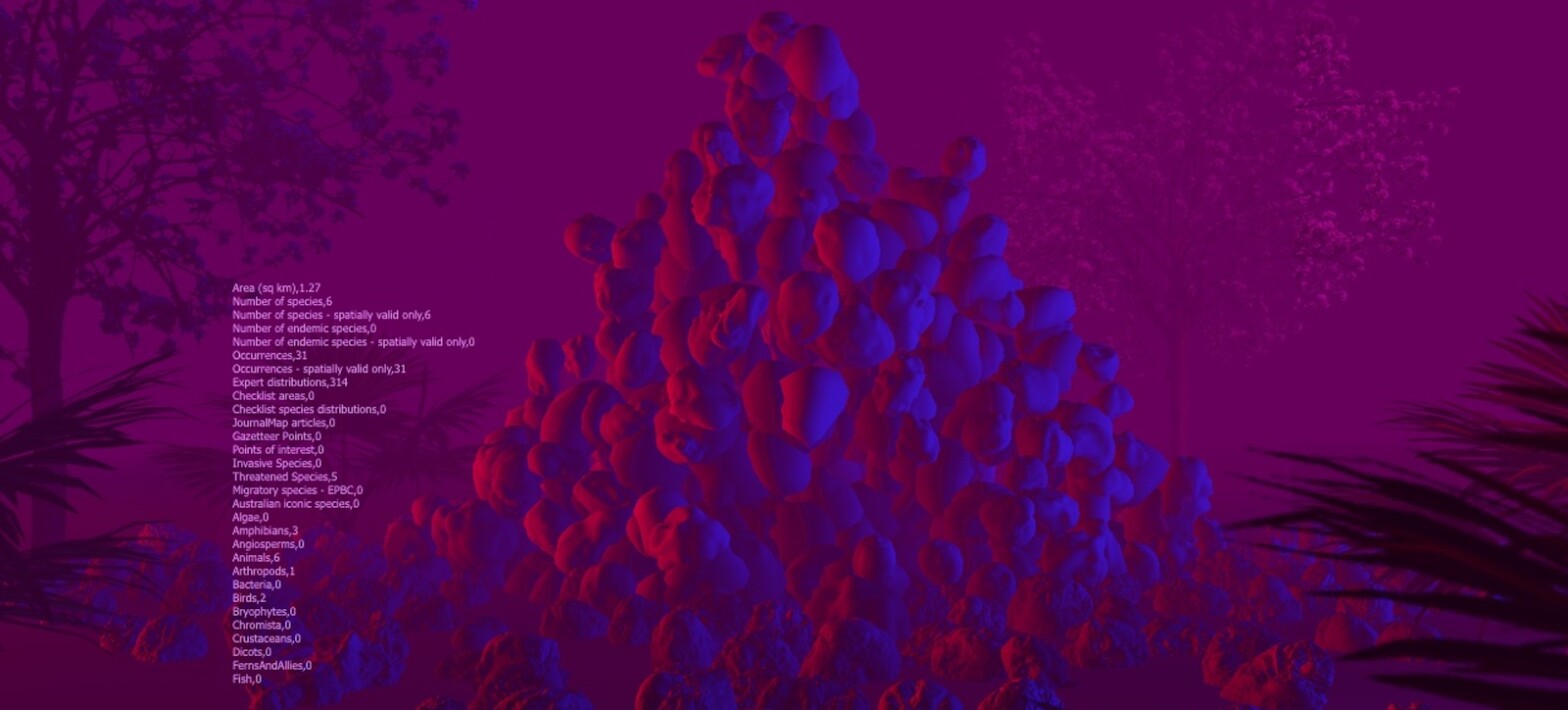| University | AA Visiting School – University of Melbourne |
| Tutors | Stefan Laxness & Pablo DeSoto |
| Year | 2021 |
| Dates | 9 to 16 July |
| Medium | Online |
Bio-cultural heritage can be understood as the biological manifestations of culture found in domesticated landscapes resulting from long-term biological and social relationships. It emerges from ecological niches created directly or indirectly as we transform our environment for agriculture, industry, and infrastructure.
New science and interdisciplinary approaches are reshaping how we understand ecosystems structures, function, and processes, highlighting the interconnectedness between them and our built environment. The challenges brought about by the climate crisis are forcing us to revisit and ultimately revalue these bio-cultural links. Compelling us to adopt a generative and reproductive interdependency with our ecosystem.
In ‘Bio-Cultural’, we will propose Bio-Cultural Architecture. Devices which generate the ecosystems of tomorrow and strengthen our interdependence. Spatial interventions designed to produce a measurable interaction between our ecosystem and our built environment. Architectural objects imagined for multi-species inhabitation. We will design how they perform, how they are inhabited by humans and nonhumans. We will explore them as artifacts for nurturing companion species relationships and entanglements. Finally, we will speculate on the outcome of our Bio-cultural architecture, by simulating how they decay and leave traces over time.
Stefan Laxness and Pablo DeSoto present their multifaceted exploration of the spatial politics of ecology and environmental restoration. Their practices sit at the intersection between architecture, radical cartography, media art and the environmental humanities to explore political ecology, more-than-human worlds, and multi-species entanglements.
Course results:
